Vitamin C Skincare While Pregnant
The Best Skin Care to Use While Pregnant (and Nursing), According to Experts

While preparing for the birth of your child is an overwhelmingly joyous occasion, being pregnant does come with more than a handful of inconveniences, including having to give up certain foods (sushi, cold-cuts, wine) and activities (high-intensity and high-impact workouts). Pregnant women also have to be careful about what they put on their skin, as products containing potent acne-fighting ingredients — like prescription retinoids, over-the-counter retinols, hydroquinone, benzoyl peroxide, and salicylic acid, to name a few — are not safe during pregnancy.
This, understandably, can come as bad news to moms-to-be with acne and other skin conditions that pregnancy can often make even worse. What's more, some of these ingredients should still be avoided even after giving birth — especially if you're breastfeeding, since topicals like retinoids can be absorbed into the skin then excreted into breast milk, or simply transferred to a baby's skin upon contact. But the data on lactating mothers is limited, so it can be confusing to know exactly what is or isn't safe to use while breastfeeding.
To help you navigate what is already a stressful time, we spoke to eight dermatologists about what ingredients to absolutely avoid during pregnancy (and breastfeeding), alternative ingredients to look for, and the best products expectant mothers can use to tackle problems like acne, dry skin, dark spots, and more. But before using any, Dr. Jennifer MacGregor of Union Square Dermatology says that it's best practice to "get a recommendation from your dermatologist and check with your OB before trying to conceive, or as soon as you find out you are pregnant." The same goes for once the baby has arrived: If you have any questions about the safety of any new product, speak to your doctor and pediatrician before trying it.
Unfortunately, retinoids (and retinols), the Vitamin A–derived holy-grail ingredient that works wonders on both acne and fine lines by promoting skin-cell turnover, are considered unsafe to use during pregnancy. "Those molecules have pretty good data showing that they can affect embryo development in the first trimester," says Dr. Abigail Waldman of Mohs and Dermatologic Center at Brigham and Women's Hospital. "Even though most of the studies were done when the medication is taken orally, we believe that it is absolutely contraindicated to use any cream or lotion with those ingredients at least during the first trimester. But I generally say avoid it during all of pregnancy." For breastfeeding moms, the data is less clear, but the dermatologists we spoke to generally agree that it's best to avoid oral or topical retinoids and retinols during lactation, too. According to Waldman, "There are no data studying it in lactating mothers and in breast milk, so it's kind of one of those unknowns. I generally recommend not using it when breastfeeding."
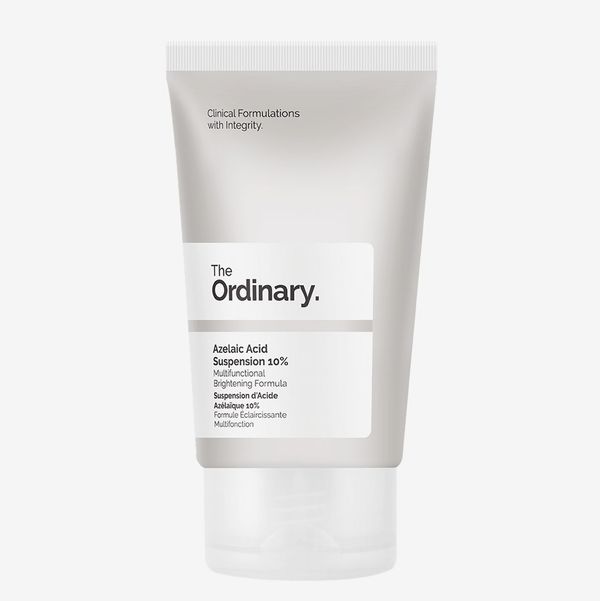
So how should pregnant women address acne if many go-to products contain retinoids and salicylic acids (another ingredient to avoid during pregnancy)? All eight of our experts recommend using azelaic acid, a topical also used to treat rosacea, that works by killing bacteria found in pores and decreasing the body's production of keratin. Dr. Michelle Park of Washington Square Dermatology says azelaic acid makes a fantastic substitute for retinols. "It's my favorite topical acne treatment to use during pregnancy and breastfeeding," she says. "It helps clear redness and acne, as well as decrease pigment production, so it helps with the dark marks that acne can leave behind." MacGregor agrees, noting that "azelaic acid has a subtle brightening effect." Although typically prescribed by doctors (under the name Finacea, for example), azelaic acid can be found over the counter, including in this creamy formula from The Ordinary that came specifically recommended by Park.
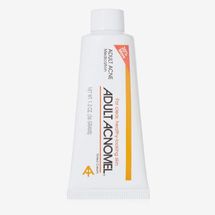
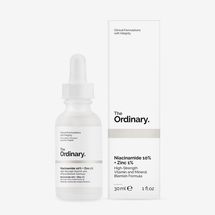
In addition to azelaic acid, New York City–based dermatologist Dr. Cybele Fishman says that pregnant women can use "topical erythromycin (prescription) and all over-the-counter topical sulfur, zinc, and niacinamide treatments." From the latter category of over-the-counter products, Fishman recommends the sulfur-based acne medication, Acnomel, as well as The Ordinary's niacinamide and zinc blemish treatment. (Park; Dr. Nava Greenfield of Brooklyn's Schweiger Dermatology Group; and Dr. Yoon-Soo Cindy Bae, a clinical assistant professor at New York University who also works at the Laser and Skin Surgery Center of New York, also agree that sulfur-based products are safe to use to treat acne while pregnant or breastfeeding.)
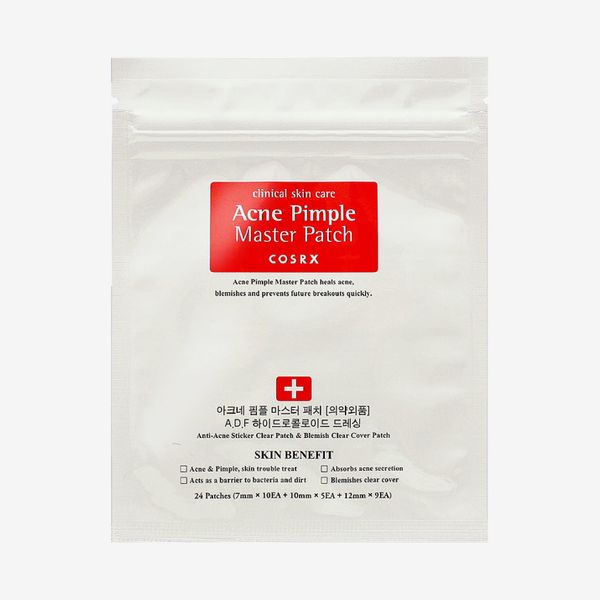
Photo: unknown
Good news: Rio's favorite pimple patches from Cosrx are also dermatologist-approved for use while pregnant and breastfeeding.
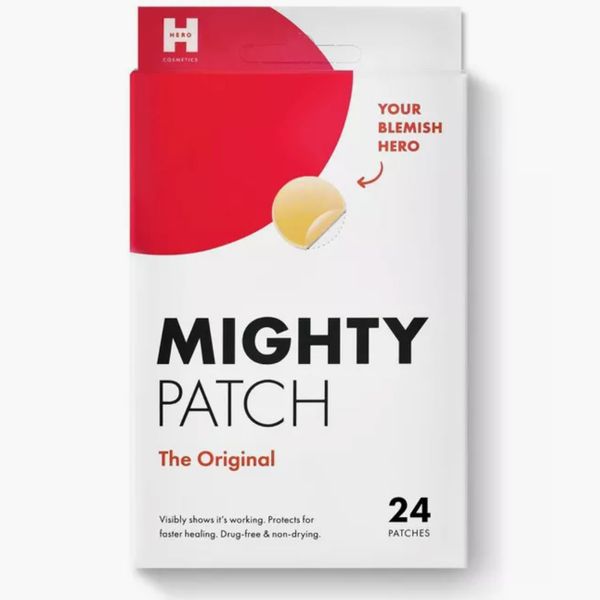
These hydrocolloid patches from Hero Cosmetics are safe to use too, and are a favorite of dermatologist and founder of Tone Dermatology Dr. Caroline Robinson who says they promote post-blemish healing.
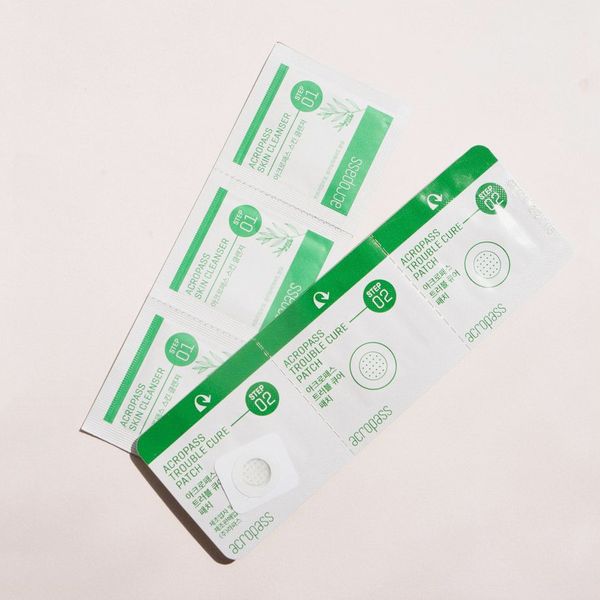
As is this two-step patch from Acropass — as long as you take care to make one important change when it comes to using it, according to Park. The first part of the Acropass patch (which Rio also recommends) includes sanitizing the blemish with a swab soaked in salicylic acid, so she advises skipping that part and using regular alcohol instead. But otherwise, our experts say the product is safe — including its microneedles (in general, microneedling is considered safe during pregnancy, but other procedures like Botox and fillers are not).
Vitamin C is an effective ingredient that can also take the place of retinoids when it comes to treating dark spots and general skin-tone issues while pregnant or breastfeeding, according to Waldman and Park. "Used in conjunction with sunscreen" — more on that below — "vitamin C not only has properties that boost collagen production and has a retinod-like effect, but also works as an antioxidant that helps fight sun damage," Park explains.
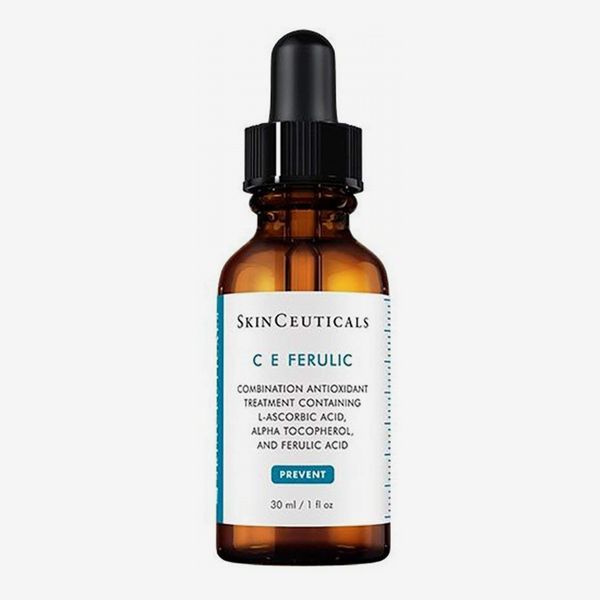
Of all the vitamin C formulas out there, Park told us she trusts one above the rest: "I always stick with Skinceuticals CE Ferulic acid for its efficacy and the research they have put into their product." Bae also recommends Skinceuticals' vitamin C serum for hyperpigmentation, dark spots, and discoloration. And, to further support its worthiness, we should note that this took the title of best overall vitamin C serum when we talked to dermatologists about their favorites.
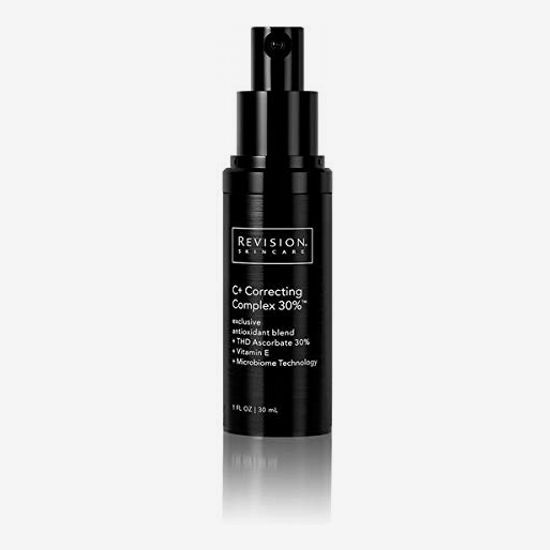
Robinson recommends this vitamin C serum from Revision, which she calls "one of the most advanced vitamin C products on the market." It has a 30 percent concentration of tetrahexydecyl ascorbate — a more stable version of vitamin C — and MelaPATH technology, which helps to make skin brighter and more even. "It visibly brightens and evens skin tone which can be very helpful for pigment changes on the skin."
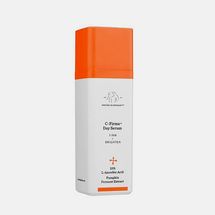
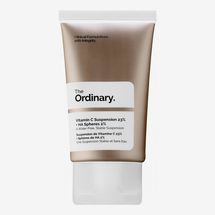
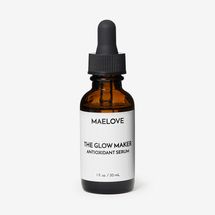
The Skinceuticals CE Ferulic and Revision may be prohibitively expensive if you're trying to save money for all the other things you need for your newborn. But Park says, "For about half the price, you can try Drunk Elephant's Vitamin C." She adds that "The Ordinary also has a low-cost option." (Maelove's Glow Maker is another dermatologist-approved vitamin C serum that would make for a budget-friendly alternative to the one from Skinceuticals.)
Cleansers can be effective for treating skin issues like acne and hyperpigmentation — you'll just want to leave them on the skin for at least 60 seconds so actives like glycolic acid have time to interact with skin.
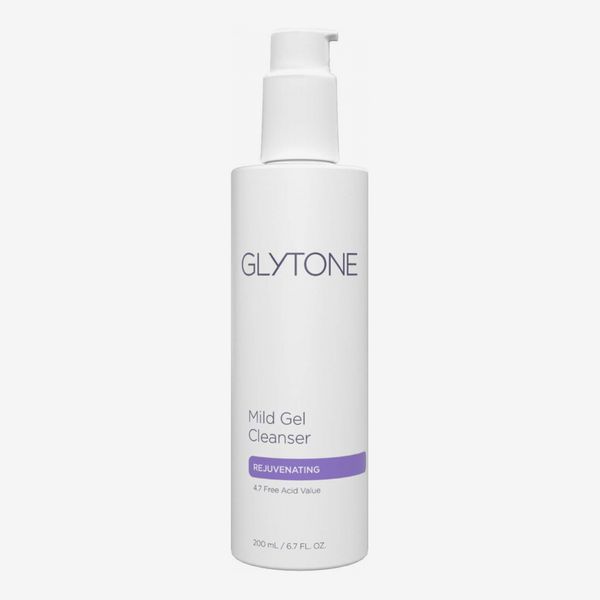
While many acids need to be used sparingly during pregnancy, glycolic acid is relatively low-risk and thus safe for skin. Dermatologist Dr. Janklow Libby says a concentration of less than ten percent falls within the okay-to-use range, and helps to exfoliate, speed up cell turnover, and treat and prevent acne. Libby likes glycolic acids in face wash form, which she describes as "short contact therapy" — meaning it only spends a limited amount of time on the skin as opposed to a serum or moisturizer, which doesn't wash off. Her favorite product for this is the Glytone Mild Cleanser. She recommends applying it in the shower and leaving it on for a minute or two before rinsing.
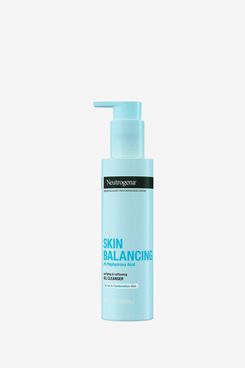
PHAs (or polyhydroxy acid) are also safe to use. "PHAs are different from other acids like AHAs or BHAs because all skin types can benefit from them," says Robinson. "They are both an exfoliant and a humectant so they leave the skin balanced and never stripped." PHA molecules are also larger than AHAs and BHAs, so they don't penetrate as deeply and tend to be less irritating. Robinson likes this cleanser from Neutrogena, which has a PHA concentration of two percent and a gel-texture consistency.
"If you're looking for a face moisturizer, I would recommend products that contain hyaluronic acid, which is incredibly hydrating and will plump the skin," says Park, who adds that "hyaluronic acid is a natural substance found in our body's tissues that's naturally there anyway, so it's not like introducing a foreign chemical." (Other acids, however — including some alpha hydroxy acids/AHAs and beta hydroxy acids/BHAs — should either be avoided or used sparingly, according to most of the pros we talked to.)
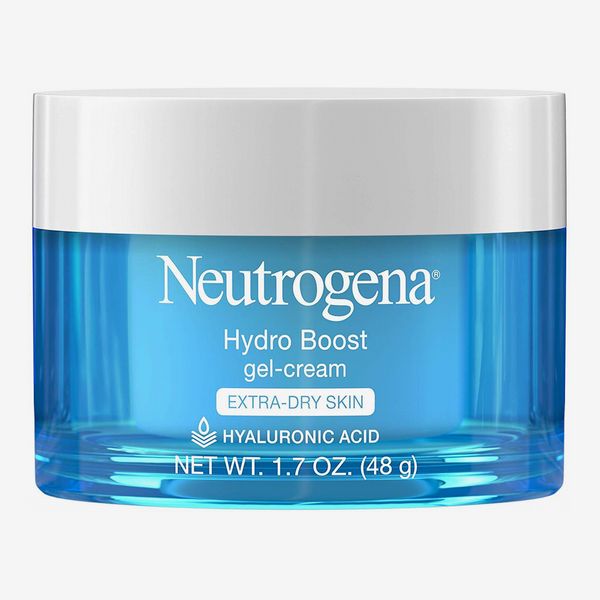
Neutrogena's gel-cream is Park's (and, incidentally, our beauty hobbyist Buzz Bissinger's) go-to pick for an affordable moisturizer that gets the job done. Formulated with hyaluronic acid, she says "it has a lot of benefits, including moisturizing and fighting fine lines," adding that "it's just an overall great moisturizer."
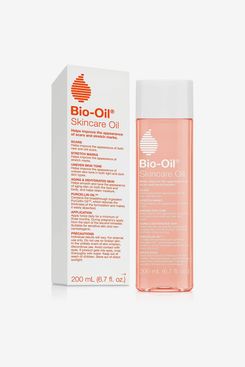
Dermatologist Dr. Anna Karp recommends the cult-favorite Bio Oil for her patients (she also works with the brand), a favorite of pregnant and non-pregnant people both. Karp says it's safe to use during pregnancy, and is good for preventing new stretch marks and healing old ones. It's fragrance-free and contains antioxidants like vitamin E and vitamin A along with herbal extracts like lavender, chamomile, and sunflower oil.
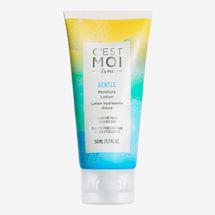
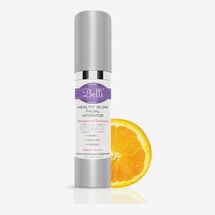
When looking for a moisturizer while pregnant or breastfeeding, Greenfield cautions against using products that call themselves anti-aging, because that means they'll likely contain either AHAs or BHAs. She also notes that, because "skin can become sensitive during pregnancy and very dry during breastfeeding, you may need to change what you use more often." When she was pregnant, she was switching between C'est Moi's Gentle Moisture Lotion and Belli's Healthy Glow Facial Hydrator, which contains vitamin C and is formulated specifically for pregnant and breastfeeding women.
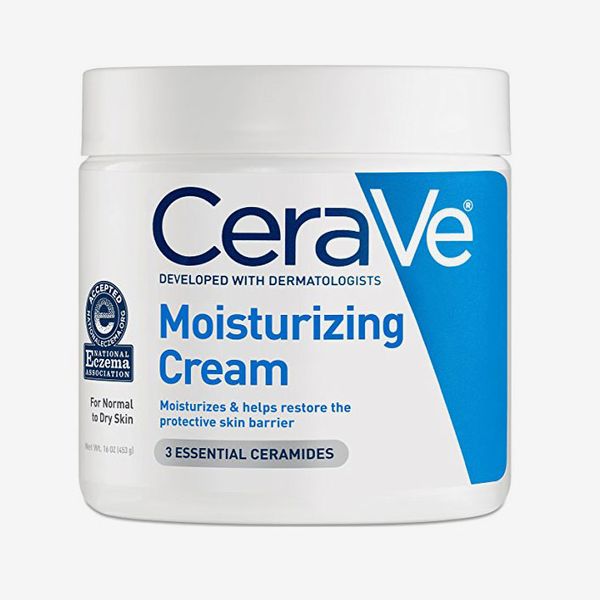
For those who prefer a true cream to a hybrid one or a lotion, Park and Greenfield also recommend this gentle moisturizer by CeraVe — a brand that took the top spot in our list of the best body lotions for dry skin. Park adds that a cream like this "will keep more moisture in the skin than a lotion."
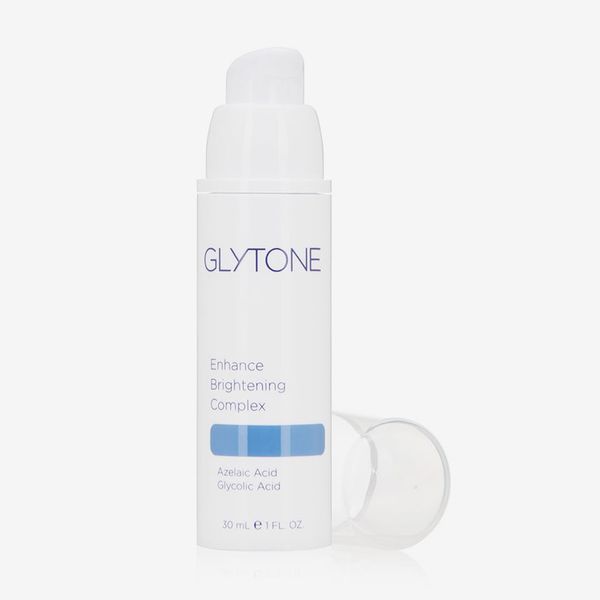
AHAs and BHAs are both popular types of skin brighteners and exfoliants that can be found in moisturizers, but, according to MacGregor, "they disrupt the skin barrier and enhance penetration of other topicals, including untested substances." She and another dermatologist we spoke to say its best to generally avoid moisturizers with AHAs and BHAs (which include salicylic acid) if pregnant or breastfeeding. But others, including Fishman and Dr. Shinjita Das at Massachusetts General Hospital, say there are some topical acids — including glycolic, lactic, malic, and mandelic — that are considered low-risk and okay to use (though Das warns to avoid letting a baby's skin touch any areas where they may be applied). This moisturizing face cream, recommended by Park, contains azelaic acid and glycolic acid, both of which, she says, will "help with acne but also to even out skin tone."
Those who can get extremely dry skin know that sometimes a moisturizer alone won't deliver all the hydration you need. In instances when "a topical moisturizer isn't cutting it, you can use a hydrating serum in conjunction with the moisturizer," Park says.
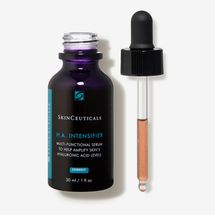
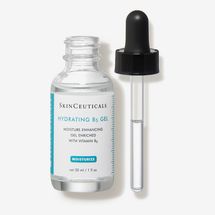
For quenching super thirsty skin while pregnant or breastfeeding, she recommends SkinCeuticals's Hyaluronic Acid Intensifier or the Hydrating B5 Gel (which also contains hyaluronic acid).
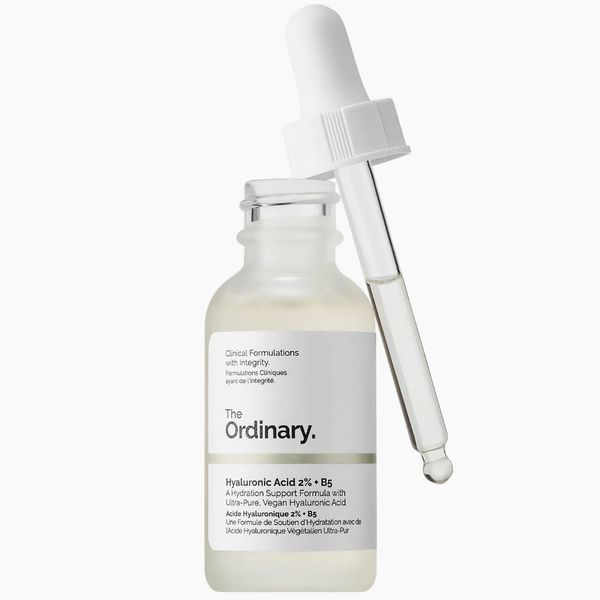
For a more affordable serum with hyaluronic acid to use on extra dry skin during pregnancy or while breastfeeding, Park recommends The Ordinary's HA with B5 (another product that Rio also swears by).
In addition to using the above products, the dermatologists we spoke with also noted that keeping out of direct sunlight — or regularly using a mineral sunscreen (or a moisturizer with SPF) if you're exposed to it — will help keep skin issues at bay while pregnant or breastfeeding.
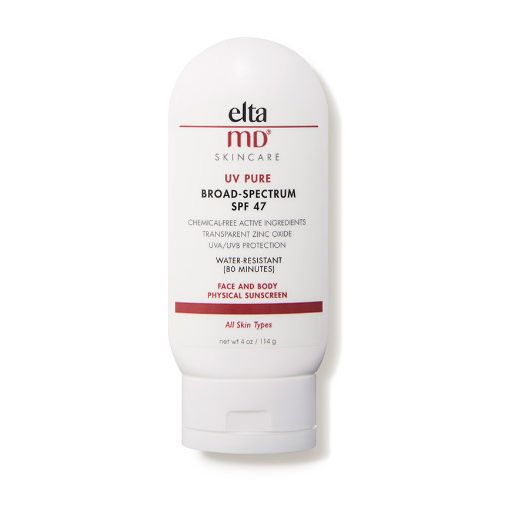
In fact, Greenfield told us that "strict sun avoidance" is one of the most important thingsks you can do to prevent hyperpigmentation, dark spots, and discoloration. That means wearing "protective clothing, a hat, and a broad spectrum mineral/physical sunscreen such as EltaMD Pure." The brand is generally beloved by derms (it took the top spot in our list of best sunscreens for face), and MacGregor notes that EltaMD's tinted sunscreens with SPF 41 or SPF 44 are a good option if you're looking for one that functions more like a tinted moisturizer. Park, Nagler, and Waldman also stress using a mineral sunscreen (which typically contain zinc oxide and titanium dioxide as their main active ingredients) over a chemical one, as mineral formulations sit on the surface of skin to block UV rays, where chemical ones seep into skin and suck UV rays in before reflecting them.
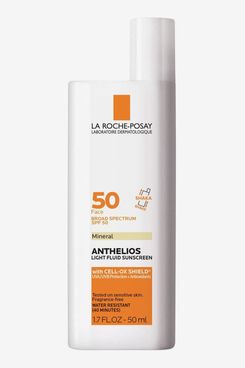
Karp also likes this mineral option from La Roche Posay, which has an ultra-light texture and quickly absorbs into skin. It has a (slightly) higher SPF of 50, and contains an antioxidant called senna alata, a plant extract that helps to protect skin from free radicals.
The Strategist is designed to surface the most useful, expert recommendations for things to buy across the vast e-commerce landscape. Some of our latest conquests include the best acne treatments , rolling luggage , pillows for side sleepers , natural anxiety remedies , and bath towels . We update links when possible, but note that deals can expire and all prices are subject to change.
Every editorial product is independently selected. If you buy something through our links, New York may earn an affiliate commission.
Vitamin C Skincare While Pregnant
Source: https://nymag.com/strategist/article/best-skincare-products-pregnancy-breastfeeding-safe.html

0 Komentar